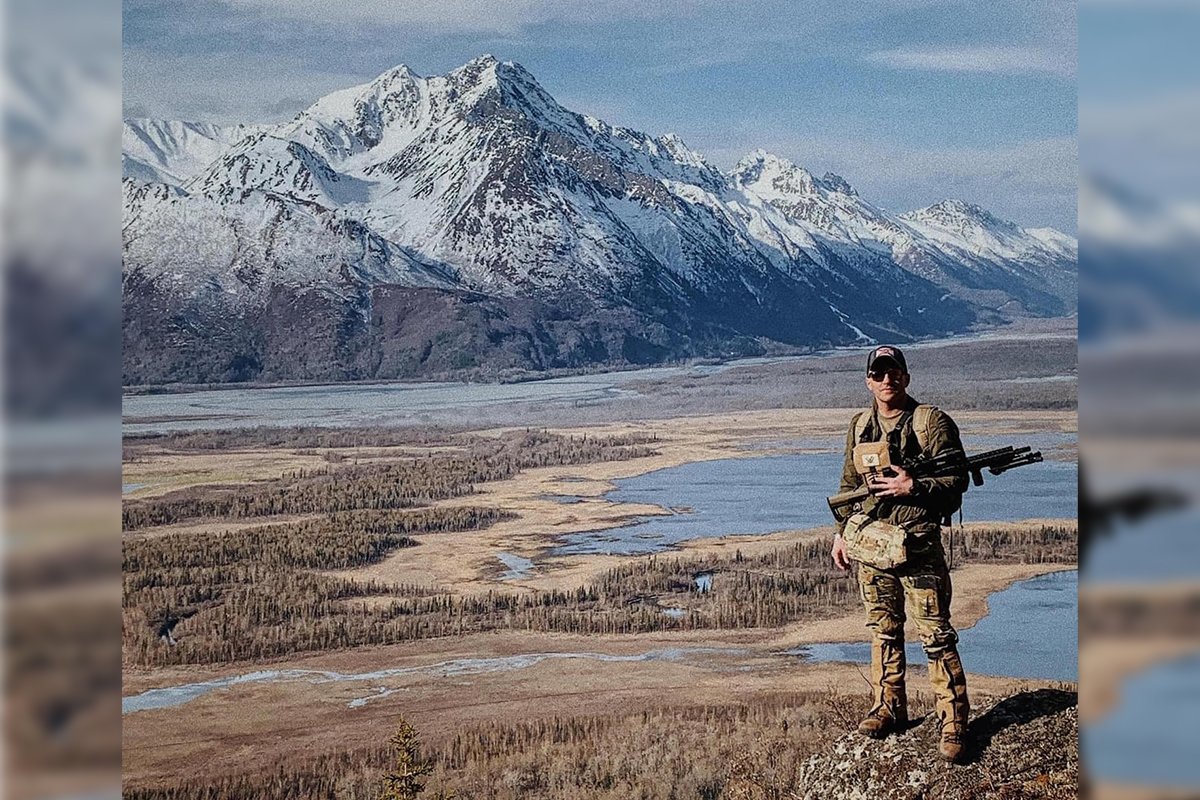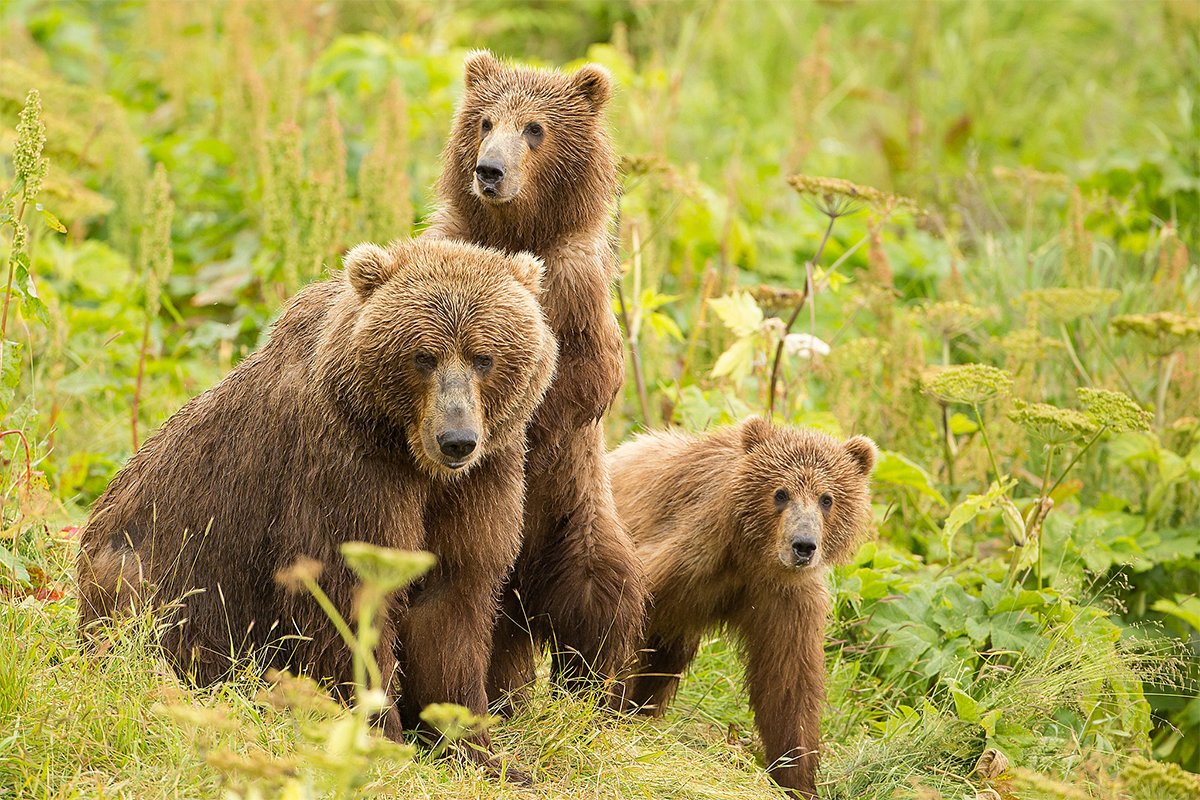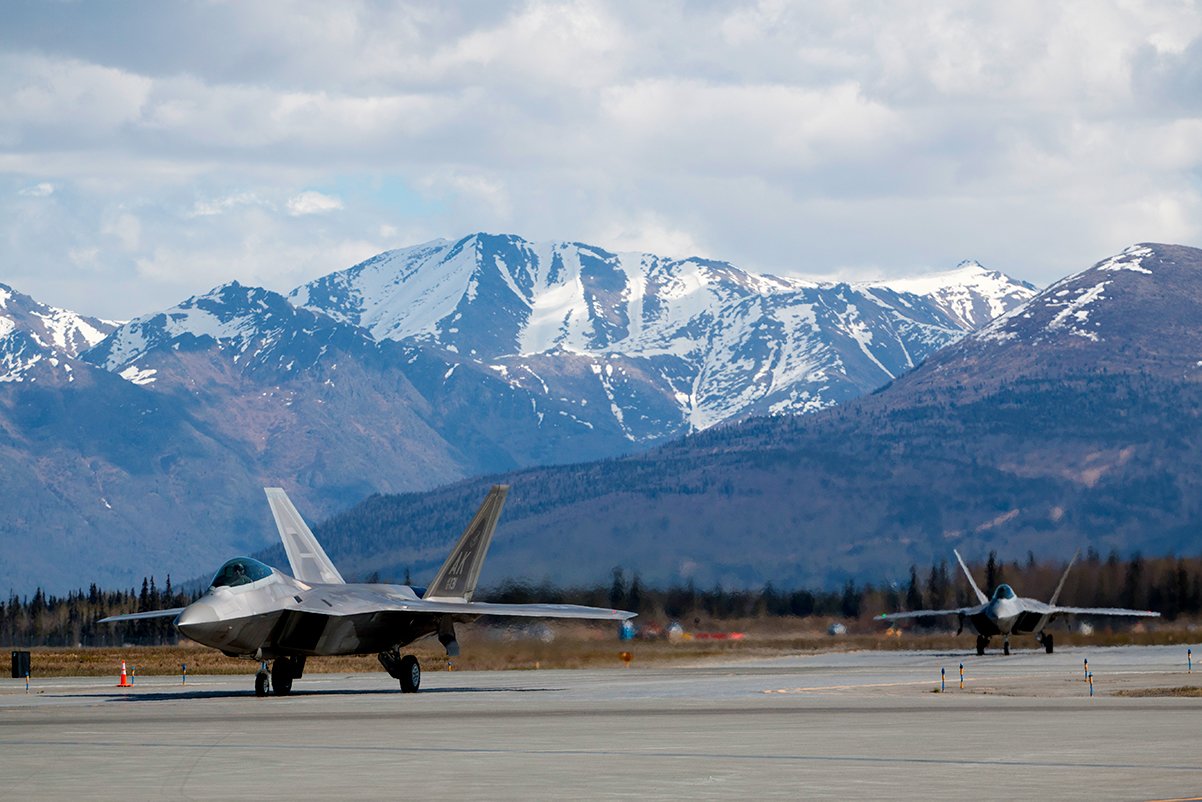Army Identifies Paratrooper Killed by Bear on Alaska Military Base

Staff Sgt. Seth Michael Plant, 30, an infantryman from the 3rd Battalion, 509th Parachute Infantry Regiment, was killed by a brown bear Tuesday, May 10, 2022, on Joint Base Elmendorf-Richardson in Alaska. Photos via Facebook.
Army officials have identified the paratrooper killed in a bear attack Tuesday, May 10, at Alaska’s Joint Base Elmendorf-Richardson as 30-year-old Staff Sgt. Seth Michael Plant. Plant was an infantryman with the 3rd Battalion, 509th Parachute Infantry Regiment.
The Army also confirmed in a news release Thursday that a second soldier had been injured in the incident, and had been treated and released.
Plant and two other soldiers were scouting a remote, heavily forested range known as Training Area 412 for use as a future land navigation course when they passed a den containing a female brown bear and two cubs. Two of the soldiers got close to the den, according to Capt. Derek DeGraaf of the Alaska Wildlife Troopers.
The bear came out of the den and attacked, according to a person with knowledge of the incident who was not authorized to speak on the record. The surviving soldier, who has not been identified, was able to use bear spray and the bear left, the source said. The wounded soldier was able to call for help, the source said, and members of the 673rd Security Forces Squadron were the first on scene.

The Army Criminal Investigation Division is investigating the incident, according to the Army, and is working in conjunction with the 673rd Security Forces Squadron, 673rd Civil Engineering Squadron conservation law enforcement officers, Alaska Wildlife Troopers, and the Alaska Department of Fish and Game.
“Staff Sgt. Plant was an integral part of our organization. He was a positive and dedicated leader who brought joy and energy to the paratroopers who served with him,” Lt. Col. David J. Nelson, 3rd Battalion, 509th Parachute Infantry Regiment commander, wrote in a news release.
Plant was from St. Augustine, Florida, and served in the reserves before joining the active-duty Army in 2015, according to the Army. He served at Fort Benning and Fort Bragg before arriving at JBER in the summer of 2021. He also served in Afghanistan, according to the Army.
“He always had a smile on his face, he always went above and beyond what was asked of him, and he served as an inspiration to all who had the privilege to know him,” Nelson wrote. “His loss is deeply felt within our organization and we offer our sincere condolences to friends and family.”

The Alaska Department of Fish and Game said Thursday afternoon in a press release that efforts to find the bear were ongoing. Game cameras placed in the area showed that an adult bear returned to the area of the attack after nightfall, when investigators had left the scene, and left with the two cubs, officials said.
“From everything we know so far, based on the scene investigation and information from other responding agencies, this appears to be a defensive attack by a female bear protecting her cubs,” Cyndi Wardlow, a spokesperson for the department, wrote in a statement.
The department said it “may” kill a bear that is found to be a public safety threat or has been involved in a fatal attack, but did not offer a more concrete statement on what will happen to the bear if and when she is located.
JBER spans more than 64,000 acres of coastal lowlands just north of Anchorage, lying between the Chugach Mountains and an inlet known as Knik Arm. Much of the base is heavily wooded, and both black and brown bears are plentiful, according to wildlife officials. While both species can be deadly to humans, brown bears — which are also known as grizzlies — are typically larger than black bears, ranging in weight from 500 to 900 pounds.

Attacks, however, are rare. From 2000 to 2017, 68 people were hospitalized by bear attacks in Alaska, and 10 people died, according to a report from Alaska health officials. Most fatalities involved brown bears, and attacks were most common in the summer months.
Military members in Alaska, like many civilians, often carry bear spray or even firearms in wilderness areas because of the potential for bear encounters. JBER officials were not immediately able to confirm what bear safety guidance soldiers receive on base, or what kind of bear protection the soldiers might have been carrying.
Following the attack, officials said Training Area 412 was closed to the public. When soldiers aren’t training, JBER is often open for hiking, hunting, and fishing.
Editor’s note: This story has been updated to include information from the Alaska Department of Fish and Game.
Read Next:

Hannah Ray Lambert is a former staff writer for Coffee or Die who previously covered everything from murder trials to high school trap shooting teams. She spent several months getting tear gassed during the 2020-2021 civil unrest in Portland, Oregon. When she’s not working, Hannah enjoys hiking, reading, and talking about authors and books on her podcast Between Lewis and Lovecraft.
BRCC and Bad Moon Print Press team up for an exclusive, limited-edition T-shirt design!
BRCC partners with Team Room Design for an exclusive T-shirt release!
Thirty Seconds Out has partnered with BRCC for an exclusive shirt design invoking the God of Winter.
Lucas O'Hara of Grizzly Forge has teamed up with BRCC for a badass, exclusive Shirt Club T-shirt design featuring his most popular knife and tiomahawk.
Coffee or Die sits down with one of the graphic designers behind Black Rifle Coffee's signature look and vibe.
Biden will award the Medal of Honor to a Vietnam War Army helicopter pilot who risked his life to save a reconnaissance team from almost certain death.
Ever wonder how much Jack Mandaville would f*ck sh*t up if he went back in time? The American Revolution didn't even see him coming.
A nearly 200-year-old West Point time capsule that at first appeared to yield little more than dust contains hidden treasure, the US Military Academy said.












